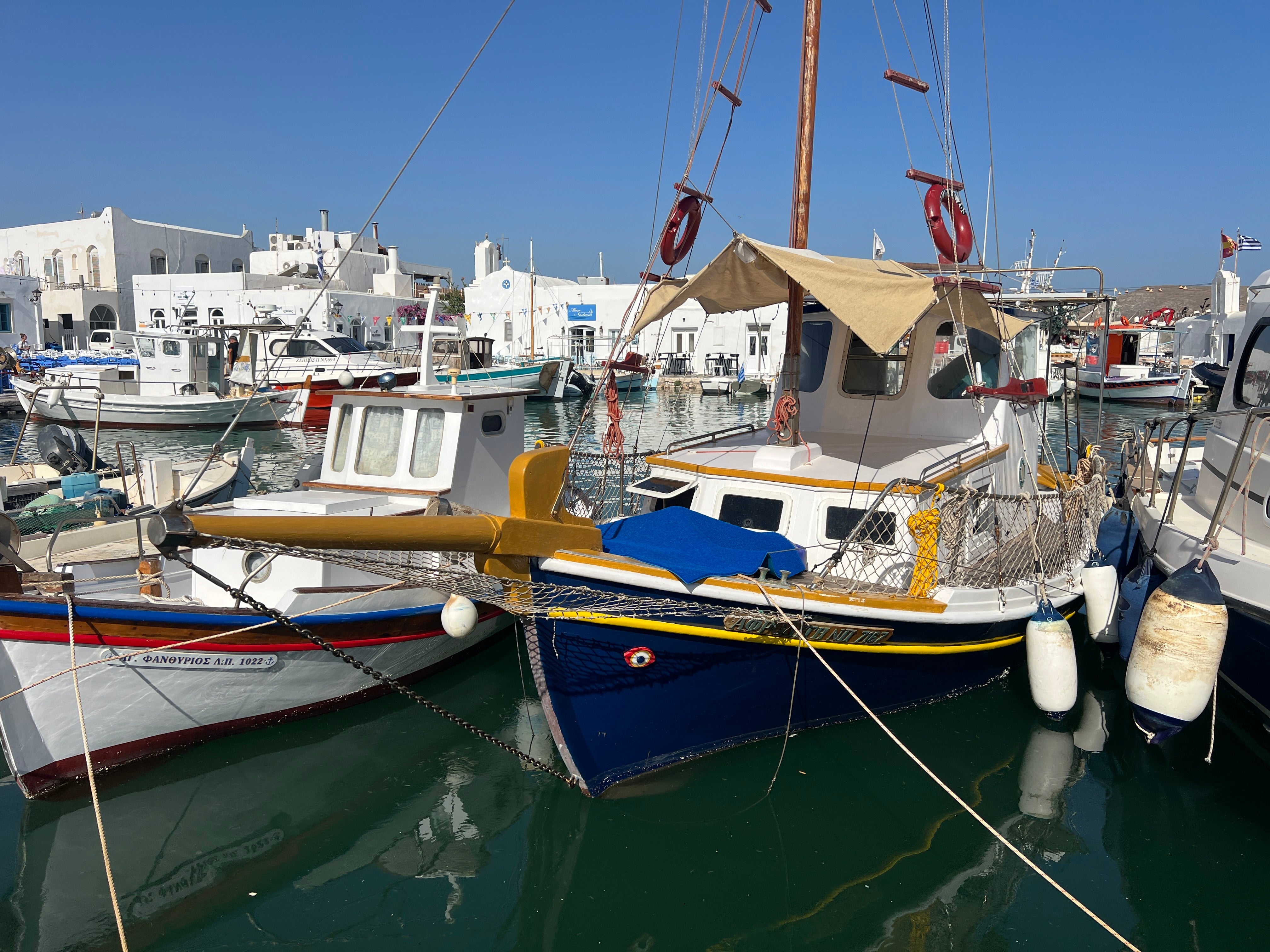For a third summer in a row, extreme heat is causing chaos in southeastern Europe.
Turkey recorded its highest temperature on record on Friday reaching 50.5C, or 123F. The UK Met Office says: “This extreme heat is bringing serious health impacts and giving a very high risk of wildfires.”
Blazes have also broken out in parts of Albania and Italy. In Greece, firefighters are tackling wildfires in the northern suburbs of Athens as well as on some Greek islands.
A pattern of wildfires and evacuations on Greek islands has played out each summer.
- 2023: the mass evacuation of 20,000 holidaymakers from the Greek island of Rhodes due to wildfires.
- 2024: many British tourists in Kos were moved from their hotels as a precaution as wildfires flared. Other islands including Zante still bear the scars of wildfires.
- 2025: earlier this summer, several thousand people were evacuated from the south eastern corner of Crete, though the wildfires did not affect the key resorts of Elounda and Malia.
Besides the extreme distress caused to communities who have seen some homes destroyed in the blaze, there is concern about the safety of holidaymakers – with fears that hot, dry conditions could fuel further blazes.
What is happening in Greece?
The Greek national weather service predicts that, on the mainland, the heat will reach heights of 37 degrees this summer. The General Secretariat for Civil Protection has issued a Fire Risk Map that shows the southern mainland of Greece, as well as the whole island of Crete, at the second-highest alert.
Fires over the weekend on some lesser-visited islands including Kythira and Evia.
After weeks of hot, dry weather, the fear is that wildfires could break out elsewhere. Holidaymakers in Athens have been affected: the Acropolis, the main tourist attraction in the Greek capital, closed for five hours on Sunday afternoon “due to high temperatures for the safety of employees and visitors”. Meanwhile cruise ships are cancelling some excursions because of concerns about extreme heat.

What are the authorities saying about the current heatwave?
Even without wildfires, heat can be a serious problem. The Greek weather service warned people at the weekend on the island of Crete that “high temperatures will lead to health risks amongst the elderly and very young.”
The NHS warns that excessive heat is potentially dangerous for children aged five and under, and older people aged 65 years and over, as well as people with underlying health conditions including heart problems, breathing problems, and diabetes.
The advice is to avoid outdoor activities, keep well hydrated and stay in an air-conditioned room – which may not constitute everyone’s idea of a great holiday.
The Foreign Office earlier this month stepped up its warning for British travellers to Greece, to include the advice of: “consider preparing a grab bag” containing passports, mobile phones and chargers, cash, bank cards and medications.

Is the Turkish temperature record more alarming?
It is, but the peak was reached about as far from the coast and cities of southwest Turkey as it is possible to be – in the southeastern city of Silopi, on the Iraqi border.
More of concern are the wildfires that have claimed firefighters’ lives in the large western Turkish city of Bursa, which is not far from Istanbul. But life is continuing as normal in Istanbul and the key resort areas around Bodrum, Marmaris and Antalya.

Can people anxious about travelling to Turkey and Greece cancel?
Probably not without losing most, or all of, their money. Under the Package Travel Regulations, holidaymakers can cancel for a refund “if unavoidable and extraordinary circumstances occur at the place of destination or its immediate vicinity which significantly affect the performance of the package or the carriage of passengers to the destination”.
The high temperatures and localised wildfires do not (yet) constitute “unavoidable and extraordinary circumstances” that could affect holidays.
Usual terms will apply: for imminent departures, cancellations are likely to result in the loss of the total cost of the holiday. It can, though, be transferred to other people for a nominal fee. Holidaymakers who have declared a pre-existing medical condition that would clearly be exacerbated by the unusually hot weather may be able to claim if they decide not to travel.
Read more: Europe heatwaves: what are your rights to change or cancel a trip?
Conversely, could people pick up a bargain holiday this summer?
Yes. Holiday companies are selling many packages for under £400 per person to Greece and Turkey.
The best deal found by The Independent is with Jet2 from Bristol to Stoupa, south of Kalamata on the Pelopponese peninsula. A week for a family of four, departing 31 July, is priced at just £272 each.
Tui is offering a week in Olu Deniz in southern Turkey for £381, departing from Exeter on 31 July. The price includes flights with baggage, transfers and hotel with breakfast.
The Greek island of Zante is even cheaper: £361 from Gatwick on 10 August, though this is self-catering accommodation.
To the highly rated resort of Elounda in eastern Crete, easyJet Holidays is selling a week’s self-catering package from Liverpool on 5 August for £468.

If extreme heat is an annual event in the Med, could holidaymakers switch to cooler destinations?
That seems rational – including staying in Britain. But tourism minister Sir Chris Bryant says domestic tourism in the UK is still below pre-Covid levels; the British love going abroad.
There is an increased emphasis on travel to northern destinations, with more routes this summer to Iceland, Norway and Finland than ever.
Yet the shift is only marginal. Looking at easyJet’s schedules for this week from Manchester: there are nine flights to the Egyptian Red Sea and only one to Iceland, which makes clear the appetite for sunshine. The temperature this week in the Red Sea resorts of Sharm El Sheikh and Hurghada will reach 39C (over 102F) this week.

Some shrewd destinations around the Mediterranean are laying on activities that avoid the hottest times of day. In the Italian Adriatic city of Grado, for example, the free city walking tour begins at 10pm.
The oldest and most impressive church in the Aegean – the Ekatontapyliani on the Greek island of Paros – now opens for visitors from 7am to 11pm.
Read more: The best mountain breaks in Europe to escape blistering summer heatwaves
